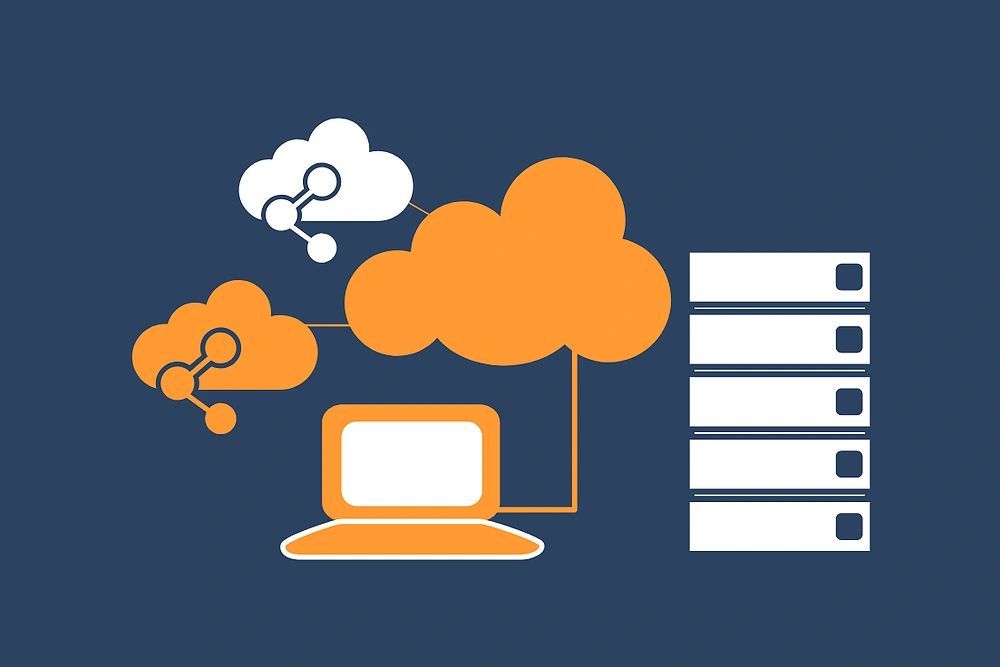
Cloud Storage or Local Storage, What Works Best for You?
Over the past several years, cloud technology has become very prevalent because it allows businesses and individuals to access their data on-demand from virtually anywhere. Cloud storage certainly offers benefits to many businesses; yet, some businesses are finding that local storage is a more effective solution.
Before we begin, we should be clear about the differences between these two types of services. Cloud storage is the process of storing your electronic data in an online space that has multiple servers and locations, and usually managed by a hosting company. Local storage is the process of storing digital data on physical storage devices, such as hard disc drives (HDDs), solid-state drives (SSDs), or other external storage devices.
Cloud services are popular because allow many businesses access to application software without the need for investing in computer software and hardware. Other benefits include scalability, reliability, and efficiency. All these benefits allow businesses to focus on other aspects like product development and improvement.
Below, we will explore pros and cons of cloud storage and local storage, so you can understand the differences between both and make a knowledgeable choice.
Pros and Cons – Cloud Storage
The Benefits
Cost – Purchasing physical storage or hardware can be expensive. Cloud storage is generally cheaper per GB.
Accessibility – Cloud storage gives you access to your files from anywhere at any time. All you need is a working and reliable internet connection.
Security – Cloud storage is safer than local storage because providers have added extra layers of security to their services. Thanks to the use of encryption algorithms, only sanctioned employees have access to the documents and files stored in the cloud.
Syncing and updating – When you are working with data in the cloud, every time you make a change to a file, the data will be synced across all of your devices. That will save you a ton of time.
Recovery – In the event of a hard drive failure or other hardware breakdown, you can access your data on the cloud, which is like a backup solution for your local storage on physical drives.
The Challenges
Downtime – Downtime is a dynamic that needs to be considered while working with the cloud because your cloud provider may face power loss, low internet connectivity, service maintenance, etc and all these issues will affect your performance.
Internet connectivity – Good internet connectivity is critical in cloud computing. Or else, you will not have any other way to access your data from the cloud.
Performance can differ – When you are working in a cloud environment, your application is running on a server that at the same time provides resources to other businesses. Therefore, you are using a shared resource and this can affect the performance of the storage service.
Pros and Cons – Local storage
The Benefits
Speed – Storing data on external hard drives is faster than uploading data to the cloud. Furthermore, you have full control of your backups and better control of who can access your data.
Capacity – One of the major advantages of local storage is capacity. While 100GB is definitely a good amount for cloud storage, a hard drive can easily provide 2TB.
Security controls – You have total control over how the data is stored, who has access to it and its security.
Not dependent on internet – Local storage is not dependent on the internet. Once you save something locally and you need access to it, it is just a click away.
The Challenges
Sharing – One limitation of local storage is that it is more difficult to share your data with others unless they are on the same network or you have another sharing service in place.
Cost – The hardware and infrastructure costs can be higher and adding on more space and upgrading can lead to additional costs.
Backup/ Recovery – If your server fails, the data can die with it. Data that is stored locally is much more susceptible to unexpected events, like fires and floods and local storage and local backups could be easily lost.
With any technology decision, the best choice for your business depends on your goals. Understanding the pros and cons of cloud storage vs local storage is useful in determining and planning how to store and access your data. So, which data storage option do you prefer: local or cloud? Are you even backing up your data? Contact Radiant Technology Solutions today to discuss your businesses needs. We are here to help!
Radiant Technology Solutions
727-493-4723


